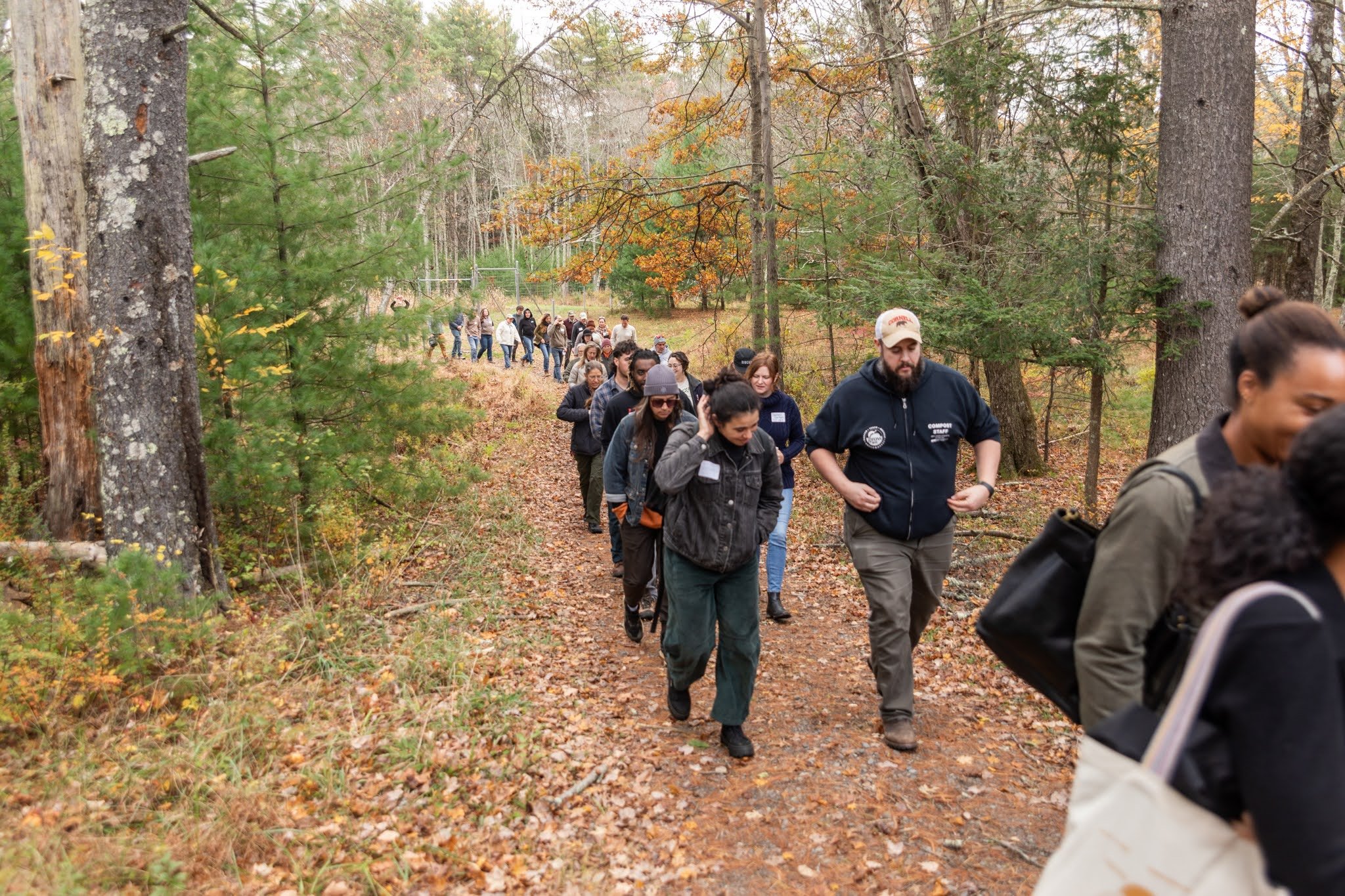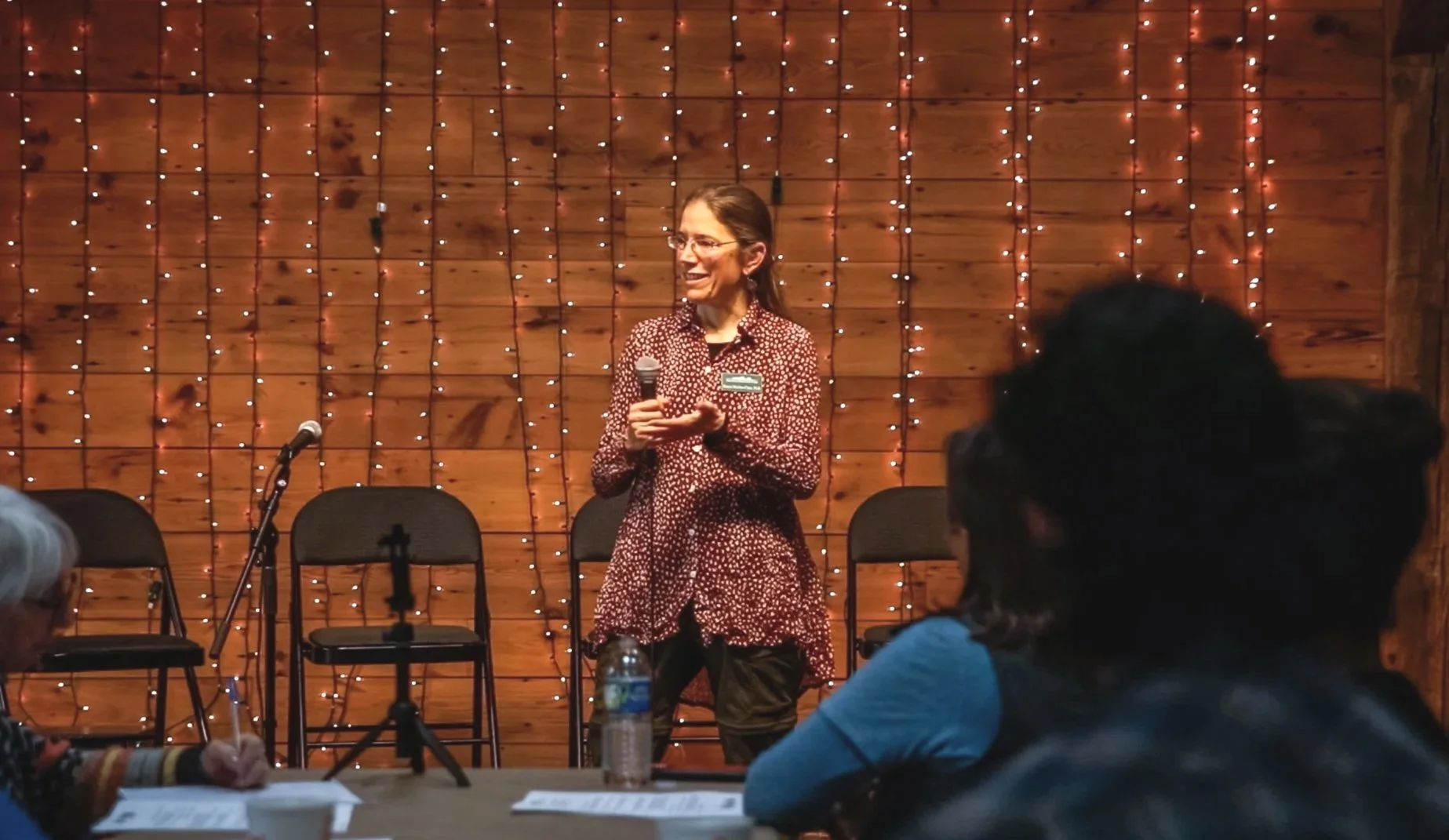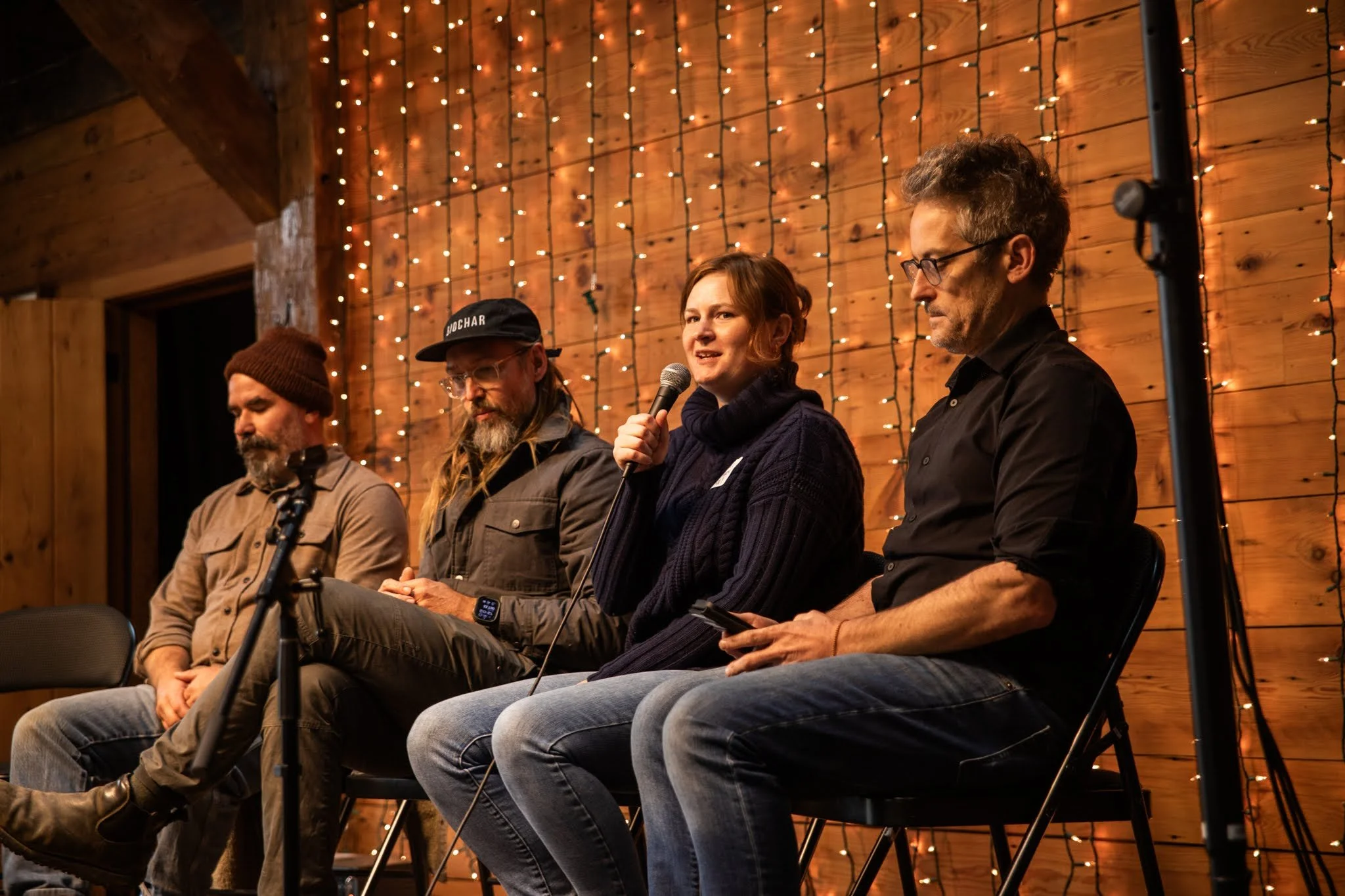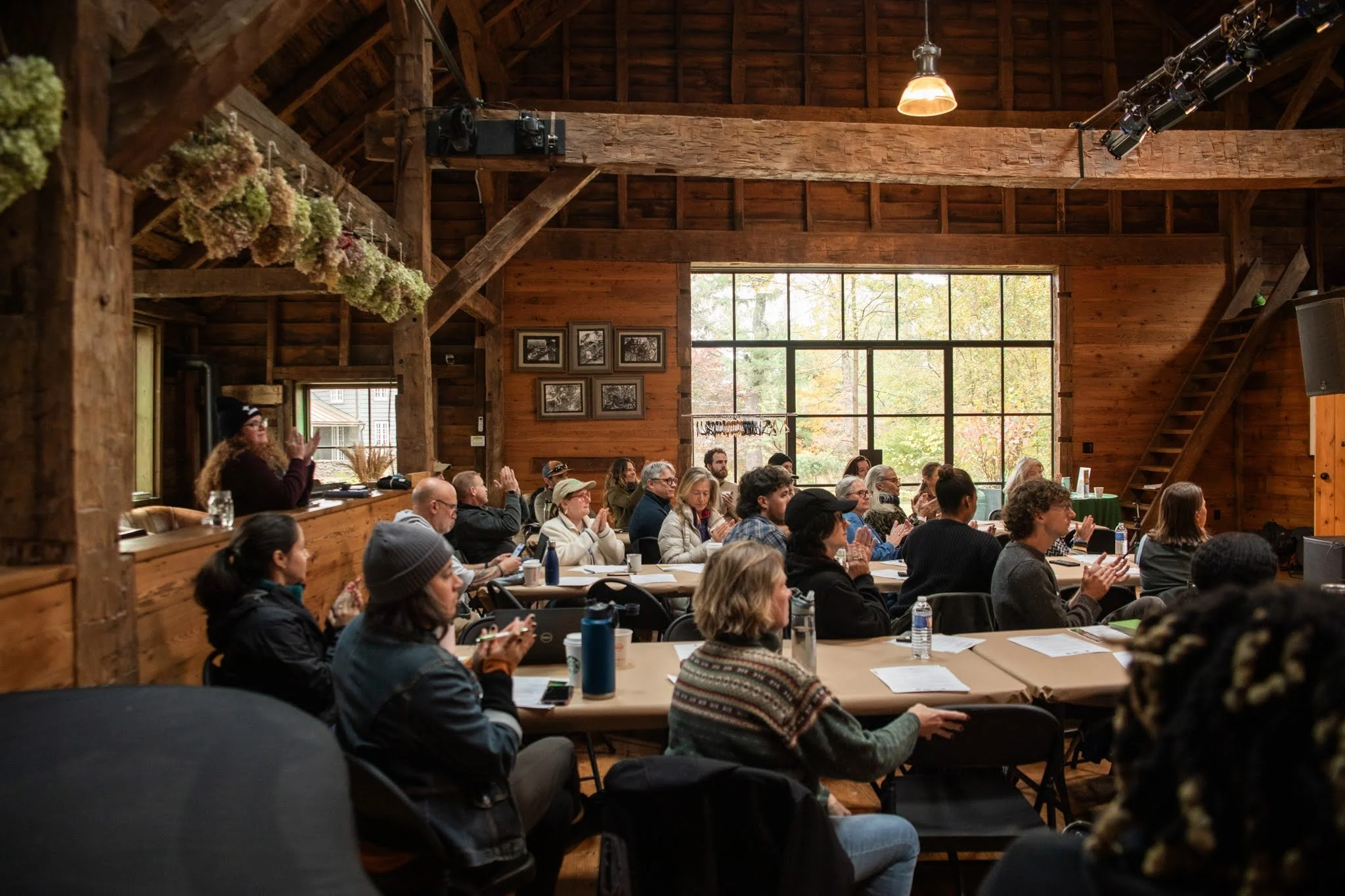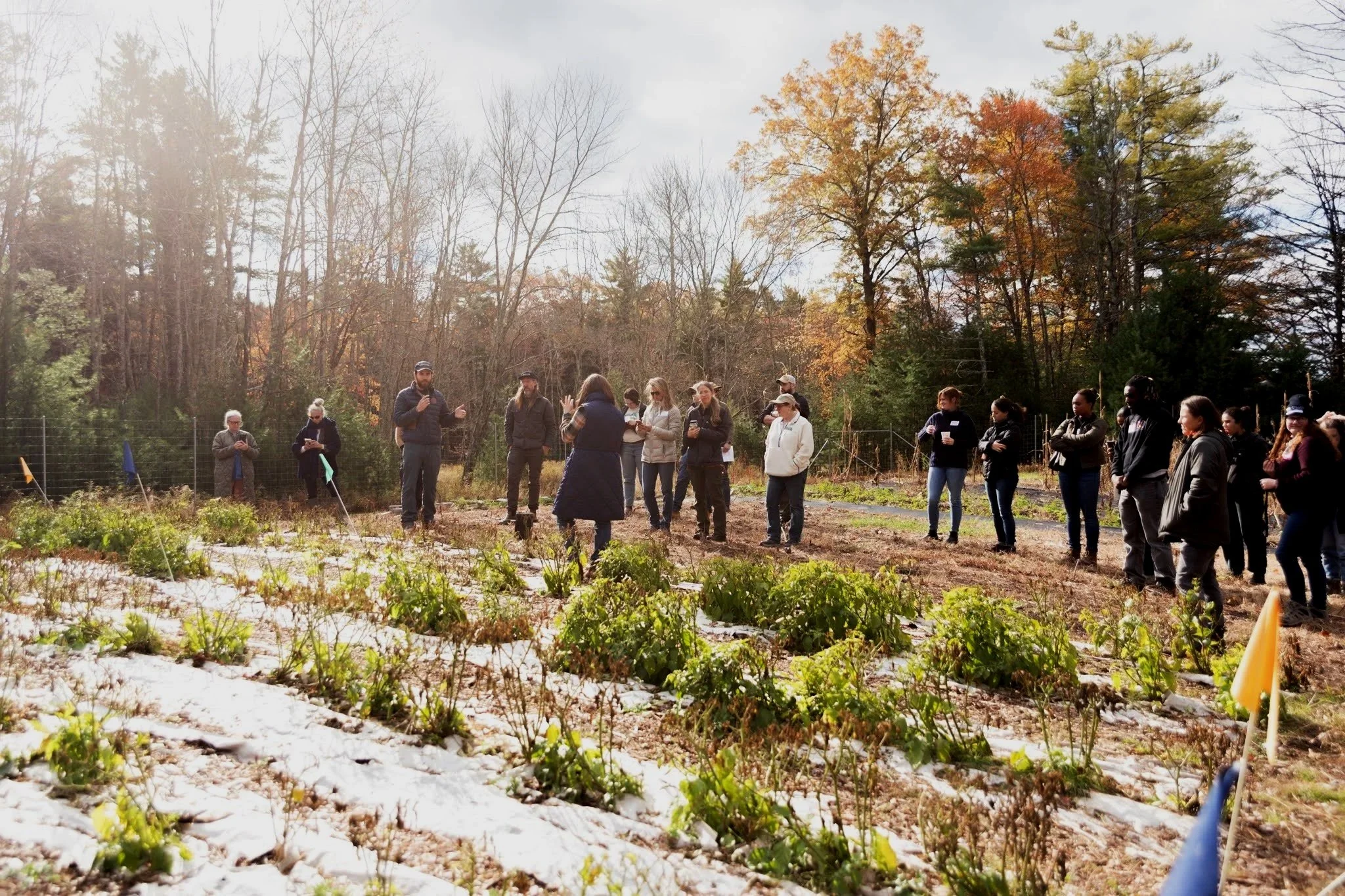
White Feather Farm Biochar & Soil Health Field Day
Building Momentum for Sustainable Biochar: A Regional Gathering in the Hudson Valley
November 5th 2025 | Bill Hilgendorf
On October 23, 2025 approximately 50 farmers, researchers, and biochar enthusiasts gathered at White Feather Farm for a Biochar Field Day co-hosted by the American Farmland Trust in partnership with New York Carbon. This gathering felt less like a conference and more like the forging of a movement around the question: how do we turn agricultural waste into a climate solution?
One of the things I love about my work is bringing people together around practical climate solutions. With so much anxiety about what might happen if we don't take action, it can feel overwhelming to even know where to start. Carbon sequestration through biochar is a simple yet scalable solution that anyone can learn, and days like this help move it from theory to practice.
Dr. Bianca Moebius-Clune,American Farmland Trust’s Climate and Soil Health Director, opened the morning with a perspective that bridged science and wonder. Her Biochar 101 presentation challenged what many assume about fire and carbon emissions. Instead of viewing combustion as purely destructive, biochar offers a different path: controlled heating that transforms organic material into stable carbon that enriches soil for centuries.
Out in the fields, Farm Manager Celia Brubaker walked us through the habanero pepper plots where biochar mixed with compost is being tested against compost alone. The trial here is one of 36 across the country as part of AFT's Breaking Down Barriers to Biochar project. White Feather is one of the smallest farms in the project, a diversified vegetable operation, but the data being collected here will join results from larger grain operations, West Coast orchards, and other systems. This is how we learn what works, where, and why.
Back near the kilns, Executive Director Marcos Stafne, and I demonstrated different production methods and highlighted our NE SARE grant, the Biochar Learning Network where we are bringing on-farm biochar production to 5 partner non-profit organizations in the Hudson Valley. Our collection of kilns represents various scales and approaches, each suited to different feedstocks and farm sizes. I explained how we're taking material that would otherwise decompose or be burned wastefully and converting it into something valuable. The message was simple: making biochar doesn't require specialized industrial equipment.
The afternoon panels brought together practitioners working at different points in the biochar system. Chris Neidl facilitated a discussion about the Hudson Valley Biochar Pioneer Project, where farmer Steven Crist of Hudson Valley Seed Company shared his hands-on experience. Melissa Everett from Sustainable Hudson Valley and Savanna Shelnutt from Cornell Cooperative Extension described their work building connections between producers and farmers, creating the infrastructure for regional adoption. The conversation had an easy rhythm, with each speaker building on the others' insights.
The second panel explored research and measurement. Jared Bueno from Cornell's Hudson Valley Research Lab discussed his trials in perennial crops, while Dr. Moebius-Clune emphasized the importance of sustainable production. We need systems that capture the energy released during pyrolysis while creating biochar that holds carbon in soil for generations. The goal isn't just carbon removal, it's doing it in ways that support rather than exploit natural systems.
As the program ended, many stayed to network and visit the production site next door. These face-to-face gatherings matter. They let us see beyond PowerPoints and research papers to the actual work happening on real farms. People left with new connections, practical knowledge, and something harder to quantify but just as important: momentum.
The ancient practice of creating fertile soil through controlled burning is finding new relevance. What once served Indigenous farmers for generations is being rediscovered and refined for modern agriculture. That continuity, that long view, is what this work is really about.
What struck me most was the diversity of people in the room. Alongside experienced farmers were service providers looking to better advise their clients, researchers collecting data, and newcomers simply curious about this approach. When demand grows from the ground up, from farmers asking questions and seeking solutions, the supply chain responds.
